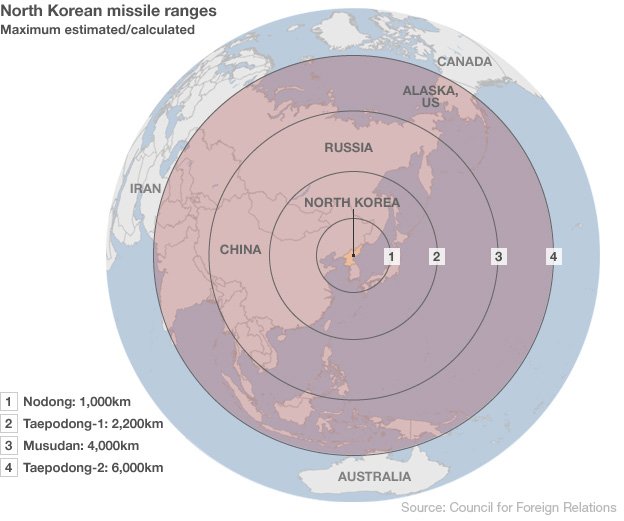Iceee
IB Expert
- Messages
- 1,007
- Reaction score
- 60
- Gender
- Male
- Religion
- Islam
And the world is waiting...
[h=1]How should Western countries deal with North Korea?[/h]North Korea has vowed to restart its nuclear facilities and is making threats against South Korea and the United States. This week on Pulse of Canada, we ask Canadians how Western countries like the United States and Canada should deal with North Korea's hostile threats.
Thomas Bink: I’m not sure what to think of North Korea. From what I understand, the country’s recent threats could just be the youthful enthusiasm of the country’s leader, Kim Jong-un, convincing his own people that he’s a powerful leader. Even South Korea doesn’t appear to be taking the threats too seriously. I think the key for Western nations is to band together under the UN/NATO stripes and make it clear that any actual aggression won’t be tolerated – that any acts will be met with swift retaliation from a truly global force.
Matthew Coutts: Yeah, I hear South Koreans are more focused on the next Psy concert than the threat of a North Korean strike. Still, we have to continue taking a hard line with North Korea, make them understand threats are not welcome. But all those years of empty rhetoric are actually dangerous. Kim Jong-un might take it too far in his attempt to outdo his father. If it comes to it, South Korea’s military should lead the response. They are highly trained and, quite literally, focused entirely on this one adversary. As for the West, the U.S. has a significant military presence ready in South Korea, and Canada has specialists there as well. I suspect it wouldn’t take more than that force to end a conflict. If it goes further than that, I have no problem sending our military into battle. The U.S. and South Korea are two allies I think deserve our support.
[ David Kilgour: Military posturing reflects North Korea's crumbling status ]
Andy Radia: I think the West needs to take a harder stand against the recent threats and actions of the young leader. Over the past couple of weeks, Kim Jong-un has threatened nuclear strikes against South Korea and the United States and today it appears they're moving missiles and telling embassy staffs to get out of Dodge. These are acts of aggression that must be responded to. I understand that the West doesn't want to escalate things but are we going to wait until the regime actually launches a missile before we do anything? Say what you want about George W. Bush, but I'm not sure he would have let things get this far.
Bink: I agree, Andy. The nuclear threat is the one that’s most alarming. For all their empty threats, the nuclear issue is very real and if we’re talking nukes, the West really can’t wait until the first bomb falls before acting. There is a blatant double-standard here … the U.S. didn’t have any problems going into Iraq because oil reserves were at risk, but when it comes to Korea we hear that it’s just a young leader acting tough, nothing to worry about. It is worrisome. Like I said, I’m on the fence here – I just think whatever is done it’s got to be a global decision, not just the U.S. acting as the world’s policeman again.
Coutts: I hate to agree, but you are right. For better or worse, Bush likely wouldn’t have let it get this far. He wielded a heavy hammer, whereas Obama seems more intent on taking careful, measured steps. (And wow, apparently I’m one of those folks who expects the U.S. to play World Police). The two things that stand out when I think “Obama and military” are drones and Seal Team Six. Who's to say the U.S. isn’t poised to tactfully punch Kim Jong-un in the nose when he moves to press his red button? Until then, disgustingly, there is not much we can do but wait and prepare. That said, things are a little more dire for the South Koreans on his doorstep. If they choose to make the first move, at this point, can any of us object?
Radia: Tom, I don't think we can wait for the UN to intervene. That body has proven itself to be dysfunctional over the past year. Just look at what they're allowing to happen in Syria. Unfortunately, we need a 'world policeman' and Obama is failing on that front. And Matt, I hope you're right; I hope the West has some things – we're not privy to – in the works to put a stop to this madness.
Bink: No easy answers on this, to be sure. Let’s hope something is done before it’s too late.
What do you think? Have your say in the comments area below.

